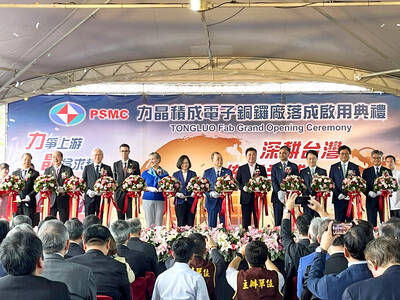Japanese conglomerate Hitachi Ltd is to halt work on a nuclear power project in the UK and take a one-time charge as negotiations with the British government over funding stalled, the Nikkei has reported.
The company is to book a loss of between ¥200 billion and ¥300 billion yen (US$1.85 billion to US$2.77 billion) after freezing the assets of its British nuclear business and writing down their value, the Nikkei reported without attribution.
Investors applauded signs the company might distance itself from the nuclear power industry — which has been saddled by cost overruns, stiff competition from cheaper fuels and tougher regulations — as well as the Brexit turmoil that has consumed the government of British Prime Minister Theresa May.
“What investors want is increased profit and a lot of synergy to be captured in the near to medium term, and not long-term projects that could escalate and blowout in terms of costs,” Macquarie Group Ltd analyst Damian Thong said.
“If Hitachi was able to guarantee the on time completion of the project and secure attractive financing of the project with the UK government, then perhaps nuclear is possible,” Tokyo-based Thong said.
Hitachi shares yesterday soared 8.63 percent to ¥3,346 in Tokyo.
Hitachi said in response to questions from Bloomberg News that it is reviewing the project and it has not made a final decision.
The Nikkei report said the company’s board would make a decision next week and cited an unidentified executive as saying the project is not being abandoned entirely and could be restarted.
The conglomerate would join the ranks of Japanese companies including Toshiba Corp that are shifting away from the nuclear power sector as project costs balloon and demand shrinks in the wake of the 2011 Fukushima Dai-ichi nuclear power plant disaster.
It also follows Hitachi’s move last month to take over ABB Ltd’s power grid division for about US$6.4 billion as it shifts toward the higher-growth market for electricity networks.
The reported decision also leaves the UK with a dwindling number of potential partners to help fund a revival of its aging nuclear power industry.
A decision over the nation’s marquee £18 billion (US$23 billion) Hinkley Point C project in 2016 was stalled as May’s government reviewed the project, sparking speculation there were concerns over its reliance on the participation of Chinese state-owned companies.
According to the Nikkei report, Hitachi was struggling to find Japanese investors to help fund its project and had approached London for further support.
Those negotiations made no progress, it said.

ARTIFICIAL INTELLIGENCE: The chipmaker last month raised its capital spending by 28 percent for this year to NT$32 billion from a previous estimate of NT$25 billion Contract chipmaker Powerchip Semiconductor Manufacturing Corp (力積電子) yesterday launched a new 12-inch fab, tapping into advanced chip-on-wafer-on-substrate (CoWoS) packaging technology to support rising demand for artificial intelligence (AI) devices. Powerchip is to offer interposers, one of three parts in CoWoS packaging technology, with shipments scheduled for the second half of this year, Powerchip chairman Frank Huang (黃崇仁) told reporters on the sidelines of a fab inauguration ceremony in the Tongluo Science Park (銅鑼科學園區) in Miaoli County yesterday. “We are working with customers to supply CoWoS-related business, utilizing part of this new fab’s capacity,” Huang said, adding that Powerchip intended to bridge

Microsoft Corp yesterday said that it would create Thailand’s first data center region to boost cloud and artificial intelligence (AI) infrastructure, promising AI training to more than 100,000 people to develop tech. Bangkok is a key economic player in Southeast Asia, but it has lagged behind Indonesia and Singapore when it comes to the tech industry. Thailand has an “incredible opportunity to build a digital-first, AI-powered future,” Microsoft chairman and chief executive officer Satya Nadella said at an event in Bangkok. Data center regions are physical locations that store computing infrastructure, allowing secure and reliable access to cloud platforms. The global embrace of AI

RIDING AI WAVE: : Most of its NT$15bn capital budget would be spent on packaging technologies used in AI and HPC chips and advanced testing technology, it said Chip testing and packaging service provider Powertech Technology Inc (PTI, 力成科技) plans to increase this year’s capital expenditure by 50 percent to expand capacity to meet growing demand for advanced memorychips used in artificial intelligence (AI) products. The company proposed to spend NT$15 billion (US$460.94 million) to expand advanced capacity and equipment, compared with a budget of NT$10 billion it planned three months ago. “We are seeing a recovery in market demand as well as new business opportunities. We will spend heavily on advanced packaging” equipment, Powertech chief executive officer Boris Hsieh (謝永達) told investors on Tuesday. “We will focus on ramping

INFLATION WATCH: A rate hike in March would help keep inflation at 2.16 percent this year, although a weak currency and higher electricity rates are an issue, S&P said Moody’s Ratings and S&P Global Ratings have reaffirmed Taiwan’s sovereign credit ratings at “As3” and “AA+” respectively with a stable outlook on the back of high income and wealth levels, a strong institutional framework and robust external positions. The affirmations came as Taiwan’s economy is gaining momentum after quarters of slowdown induced by stubborn global inflation and monetary tightening. Taiwan’s strong fiscal and external buffers have improved relative to peers as evidenced by recent shocks linked to the COVID-19 pandemic and the ongoing US-China technology dispute, the two ratings firms said. “Taiwan stands as the epicenter of the global semiconductor supply chain, accounting